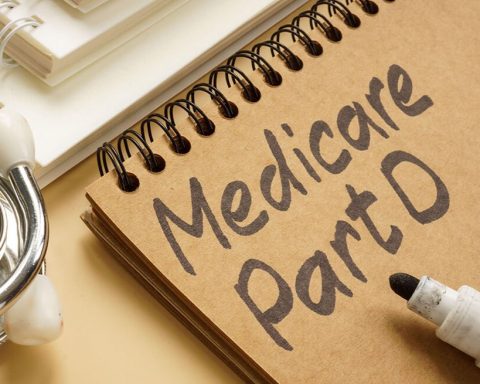Medicare is a federal government health insurance program for senior citizens and those suffering from particular diseases or disabilities. It offers essential healthcare coverage for millions of Americans through various plans tailored to different needs.
Having a thorough understanding of Medicare eligibility requirements is important for Individuals who are approaching retirement age or have specific health conditions. This is so they do not miss out on the opportunity to enroll in the appropriate Medicare plan and can ensure continued healthcare coverage.
This article explores Medicare eligibility criteria for Parts A, B, C, D, and the Medicare Supplement or Medigap plans. We also look into the enrollment process for each plan.
Medicare Part A Eligibility
Medicare Part A (Hospital Insurance) covers hospital stays, skilled nursing facility care, hospice care, and some home health services. The eligibility requirements for Medicare Part A fall into two categories: age-based eligibility and eligibility based on disability.
Age-Based Eligibility for Medicare Part A
People who are 65 years or older are the primary beneficiaries of Medicare Part A. Individuals who have worked and paid Medicare taxes for at least 10 years, or 40 quarters, are eligible for premium-free Medicare Part A coverage. Premium payments are necessary for those who do not meet this 10-year requirement.
Exceptions or Special Considerations for Early Eligibility
Individuals under the age of 65 may be eligible for Medicare Part A if they meet certain criteria. This includes people with end-stage renal disease (ESRD) or amyotrophic lateral sclerosis (ALS), commonly known as Lou Gehrig’s disease.
Eligibility for Medicare Part A Based on Disability
Medicare Part A coverage also extends to individuals under the age of 65 with certain disabilities. To qualify, an individual must have received Social Security Disability Insurance (SSDI) benefits for at least 24 months.
This waiting period is to ensure that individuals with short-term disabilities or temporary conditions do not become eligible for Medicare benefits.
Medicare Part B Eligibility
Medicare Part B (Medical Insurance) provides coverage for doctor visits, preventive care, outpatient services, and durable medical equipment, among others.
General Eligibility Requirements for Medicare Part B
U.S. citizens and legal residents who have lived in the country for at least five consecutive years are automatically eligible for Medicare Part B coverage when they reach the age of 65. Unlike Part A, Medicare Part B coverage requires payment of monthly premiums.
Enrollment Process for Individuals not Automatically Enrolled
People who are not automatically enrolled in Medicare Part B must initiate the enrollment process. This means signing up during the Initial Enrollment Period (IEP), which starts three months before an individual’s 65th birthday, includes that month, and extends for three more months thereafter. Failure to enroll during the IEP may result in a late enrollment penalty.
Eligibility for Medicare Part B based on disability
Much like Medicare Part A, younger individuals with certain disabilities can be eligible for Medicare Part B before reaching 65 years of age. Individuals who have received SSDI benefits for at least 24 months are automatically enrolled in Medicare Part B.
Medicare Part C (Medicare Advantage) Eligibility
Medicare Part C, also known as Medicare Advantage, offers comprehensive healthcare coverage through Medicare-approved private insurance companies.
Eligibility Criteria for Medicare Advantage Plans
Individuals must be already enrolled in both Medicare Parts A and B to qualify for Medicare Part C. To be eligible, they must also reside in the Medicare Advantage plan’s service area, as coverage under specific plans is limited to particular geographical locations.
Enrollment Considerations for Individuals with Disabilities
Individuals with disabilities who are under the age of 65 can also be eligible for Medicare Advantage plans. Coverage can vary by the state and a particular plan’s service areas.
Special Considerations for Medicare Advantage Special Needs Plans (SNPs)
Medicare Advantage Special Needs Plans (SNPs) cater to individuals with specific health conditions and needs. Examples of SNPs include plans for individuals with chronic illnesses such as diabetes and heart disease, among others.
Benefits and Coverage Options Under SNPs
SNPs provide specialized care and additional benefits tailored to the specific needs of eligible individuals. These plans include coverage for prescription drugs, specialized doctors, and care coordination services. The precise benefits and coverage options under SNPs vary depending on the plan and the individual’s health condition.
Medicare Part D (Prescription Drug Plans) Eligibility
Medicare Part D offers prescription drug coverage to Medicare beneficiaries. It’s a standalone plan that you need to buy separately.
General Eligibility Requirements for Part D Coverage
You must be a part of Medicare Part A and/or Part B to be eligible to buy Medicare Part D. Medicare-approved private insurance companies offer coverage under this plan.
Enrollment Process for Individuals Not Automatically Enrolled
While some individuals are automatically enrolled in a Medicare Part D plan, others need to enroll during their Initial Enrollment Period. This period usually aligns with their IEP for Medicare Parts A and B. Missing the enrollment deadline may result in a late enrollment penalty unless you qualify for the Special Enrollment Period.
Extra Help (Low-Income Subsidy) Eligibility for Part D
Medicare offers Extra Help, also known as the Low-Income Subsidy, to assist individuals with limited income and resources pay for prescription drug costs. Income and asset limits determine eligibility for Extra Help in Medicare. The specific income and asset limits are subject to change and may vary each year. Individuals who qualify for Extra Help may have reduced or no premiums, deductibles, or copayments.
Enrollment Options for Qualified Individuals
Qualified individuals who meet the income and asset limits for Extra Help can enrol in a Medicare Part D plan that offers this subsidy. The Social Security Administration (SSA) determines eligibility for Extra Help, and individuals can apply online or through their local Social Security office.
Medigap (Medicare Supplement Insurance) Eligibility
Medigap, also known as Medicare Supplement Insurance, helps pay for some of the costs that Original Medicare does not cover. That can include copayments, coinsurance, deductibles, and excess charges.
Eligibility for Medigap plans
To be eligible for Medigap Plans, an individual must enrol in both Medicare Parts A and B. The best time to enroll in a Medigap plan is during the Medigap Open Enrollment Period, which starts on the first day of the month in which an individual turns 65.
Insurers cannot deny coverage or charge higher premiums based on pre-existing conditions during this period.
Timing Considerations for Enrollment
You may be subject to medical underwriting if you apply for enrollment in a Medigap Plan Open Enrollment Period.
In such cases, insurers may consider an applicant’s health status, charge higher premiums, or impose waiting periods for coverage of pre-existing conditions.
Eligibility Outside of the Initial Enrollment Period
There are some circumstances under which you can apply for Medigap enrollment outside the Open Enrollment Period window. Examples include losing existing coverage, moving to a new area, or having an existing plan terminated.
How to Apply for Medicare Once Eligible
You can initiate the application process for Medicare through multiple channels. Once you are eligible, you can apply for Medicare online through the Social Security Administration website, by visiting the local Social Security office, or by calling their toll-free number. Make sure to gather all necessary documents, including proof of age, proof of citizenship or residency, and Social Security information, before applying.
Reach out to CoverRight for guided assistance with Medicare eligibility and enrollment.
Frequently Asked Questions (FAQs)
Can I Have Both Medicare Part A and Part B?
Yes, the majority of people who qualify for Medicare have coverage under both Part A and Part B. Part A covers hospital insurance for inpatient care or skilled nursing care, while Part B covers medical services like doctor visits and preventive medical care.
Can I Switch Between Medicare Advantage Plans?
Yes, people who have Medicare Advantage coverage can switch plans during the annual Medicare Advantage Open Enrollment Period, which runs from January 1 to March 31. Beneficiaries have the option to return to Original Medicare with or without a standalone Part D plan during this time or change to a different Medicare Advantage plan altogether.
Are There Any Income Limits for Medicare Part C Eligibility?
Medicare Part C has no income restrictions on eligibility. Income restrictions might apply, however, to those applying for Extra Help (a low-income subsidy) to cover prescription drug costs.
How Does Eligibility for Other Health Coverage Impact My Medicare Options?
Other health coverage, such as employer-sponsored insurance or veterans’ benefits, may have an impact on an individual’s Medicare options. Make sure you understand the coordination of benefits and the potential consequences of enrolling in or deferring certain Medicare plans based on existing coverage. For more information, contact CoverRight or speak with a Medicare expert or insurer.










